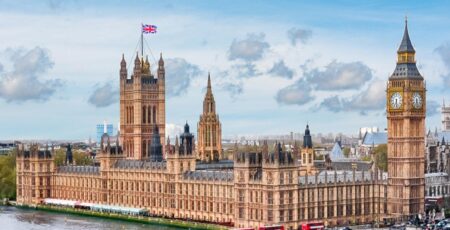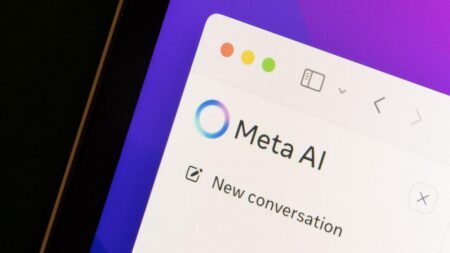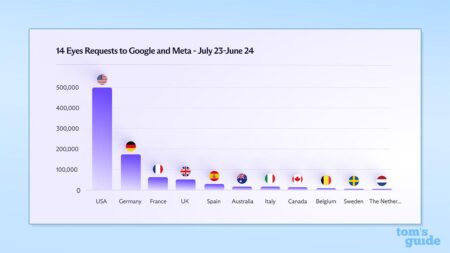Italy has made a bold move against Meta by ordering the suspension of its policy that blocks rival AI chatbots on WhatsApp. This landmark decision shines a spotlight on the fight for fair competition and safeguarding user freedom, directly challenging Meta’s control over third-party AI integration on its platform
Browsing: data privacy
Italy has made a bold move by ordering Meta to stop its WhatsApp policy that blocks rival AI chatbots. This landmark decision tackles antitrust concerns head-on, aiming to promote fair competition and prevent Meta from limiting access to other AI services
Italy’s antitrust agency has hit Apple with a staggering $116 million fine, accusing the tech giant of misleading users about a crucial privacy feature. Apple, however, is fighting back and has vowed to appeal the ruling, firmly defending its practices. This high-profile case highlights the increasing global scrutiny on major tech companies like never before
Spanish authorities have captured a teenager suspected of stealing an astonishing 64 million personal data records in one of the largest breaches ever recorded. This eye-opening case highlights the growing cybersecurity and data protection challenges Europe is grappling with today
A group warns that a proposed database of synagogues, Jewish schools, and summer camps risks becoming a “catalogue for hostile actors,” raising urgent security and privacy alarms within the community
Italy’s competition authority is intensifying its investigation into WhatsApp’s AI policies, delving further into potential antitrust breaches and data privacy concerns. This development underscores the increasing regulatory pressure on tech giants throughout Europe
IAPP’s Global AI Governance review puts the UK’s vibrant legal landscape in the spotlight, showcasing expert insights from Lewis Silkin LLP on the innovative regulatory frameworks shaping AI development, ethics, and compliance throughout the region
The U.S.-U.K. Tech Prosperity Deal is set to unleash a wave of groundbreaking innovation, but it also ignites a fierce debate about the risks to national sovereignty. Critics warn that the agreement could prioritize rapid growth and expansion over protecting privacy and preserving full control
Microsoft has unveiled a groundbreaking governance framework for India’s public sector, boldly addressing the growing challenges of data sovereignty. This innovative initiative promises to enhance transparency and reinforce regulatory compliance in an age of heightened scrutiny
The UK government is launching a mandatory digital ID system aimed at enhancing online security and making access to public services easier than ever. While this bold move offers exciting convenience, it also ignites crucial conversations about privacy and the importance of robust data protection measures
All eyes are locked on the Folha-OpenAI showdown in Brazil, a groundbreaking clash that highlights the intricate challenges of AI content use and copyright. This high-stakes battle could redefine the future of technology and media throughout the nation
Brazil has just passed a groundbreaking bill that mandates online age verification and strengthens protections for children’s data, marking a bold leap forward in preventing underage access and enhancing privacy safeguards across all digital platforms
France has hit Google with a staggering $381 million fine for failing to protect consumers, Reuters reports. This significant penalty shines a spotlight on the tech giant’s shortcomings in adhering to French consumer protection laws
Key stakeholders in Australia’s social media age assurance trial have been sidelined amid a surge of internal leaks and resignations, raising urgent questions about transparency and governance in this high-profile initiative, The Guardian reports
The Data (Use and Access) Act 2025 marks a groundbreaking shift in the UK’s data protection landscape, putting users firmly in control while enabling unprecedented secure data sharing across both public and private sectors
Meta insists that to truly understand the unique local nuances, its AI must access personal data from Australian social media posts-sparking a fierce debate and raising serious privacy concerns
The EU’s top court adviser has delivered a powerful endorsement for Italy in its legal showdown with Meta Platforms, passionately backing Italy’s stance on digital regulations and data privacy. This groundbreaking ruling has the potential to transform how Meta conducts business across Europe
Germany’s Hesse state government has made a bold move by choosing to uninstall Microsoft Teams, citing significant data security concerns. This action underscores the growing wave of European skepticism toward US tech giants amid ongoing privacy debates
The Supreme Court of Canada is gearing up to hear a landmark privacy case involving Facebook. This crucial ruling has the potential to transform user data protection and significantly increase accountability for social media platforms throughout Canada
The U.S. government is calling on Google to reveal user data, spotlighting its recent acquisition of Yahoo Japan. Officials argue that this significant deal highlights the urgent need for increased transparency in how tech giants handle data, all in pursuit of stronger regulatory compliance.



















